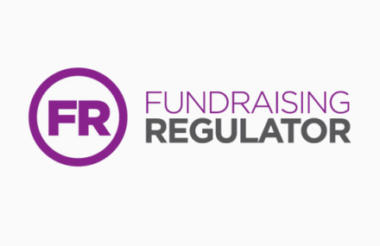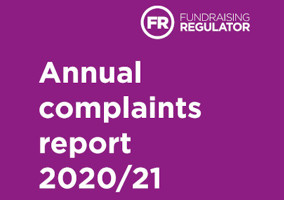Large charities have reported receiving high numbers of complaints about online fundraising, according to a new report.
The report shows 56 of the biggest fundraising charities received 15,104 complaints overall in 2021-22, compared to 17,800 in 2020-21 and 18,569 in 2019-20.
Of these, for the second consecutive year, online fundraising drew the most complaints (3,593) but this was lower than those received in 2020-21 (5,836).
Nevertheless, the Fundraising Regulator said online fundraising was “relatively low risk” with one complaint for every 2.5 million impressions in 2021-22.
Complaints about door-to-door fundraising increased from 752 in 2020-21 to 1,936, as such activity returned following the government’s lockdown measures.
NCVO said it was “inevitable” that complaints about face-to-face fundraising increased but urged charities to monitor how they present information online.
Meanwhile, the regulator reported that it directly received an increase in complaints made about charities using “misleading information” in their campaigns.
Misleading information
The regulator’s latest annual complaints report shows that the regulator directly received 1,080 complaints in 2020-21, a 19% increase on the year before.
It closed 1,040 cases during the year, 25 of which were from the previous year, but only 381 were within its remit, compared to 363 the year before.
Of the 381 complaints the regulator closed, 70 related to misleading information, compared to 60 the previous year.
“Some complaints related to concerns that fees or charges were misleadingly described as donations,” the report says.
“Charities should consider whether their organisation has correctly described the type of payment being asked for. If a payment or sum of money is mandatory to access services or goods, it cannot accurately be described as a donation.”
More generally, the report says: “Charities need to consider the content and structure of their fundraising materials to make sure that information on different channels is open, honest and not likely to mislead.”
Unwanted charity bags
In terms of fundraising methods, charity bags and clothing banks (77) and digital campaigns (74) generated the most complaints directly to the regulator.
Specifically, the regulator received 33 complaints about charities delivering charity bags to houses that display a sign on the front door indicating that the resident does not wish to receive them.
“It is important for charities of all sizes to make sure that the third parties they contract, and any subcontractors, adequately train and monitor those distributing and collecting materials on their behalf,” the report says.
“Charities should make sure they have sufficient oversight of both the operational processes and any complaints received, especially as the public will associate the actions and behaviours of any third parties with the charity brand.”
NCVO: Charities should check online information
NCVO’s policy and public affairs manager Chris Walker said: “It’s reassuring that we continue to see that complaints are down from pre-pandemic levels, reflecting the work done by fundraisers to rethink their relationships with donors.
“Face-to-face fundraising remains important and valued by many who support charities. It is inevitable that as that activity increases so will complaints, but charities should keep a close eye on the public response to this.
“With the biggest concerns now relating to how information is presented online, charities will need to make sure their asks remain clear, robust, and accessible.”












